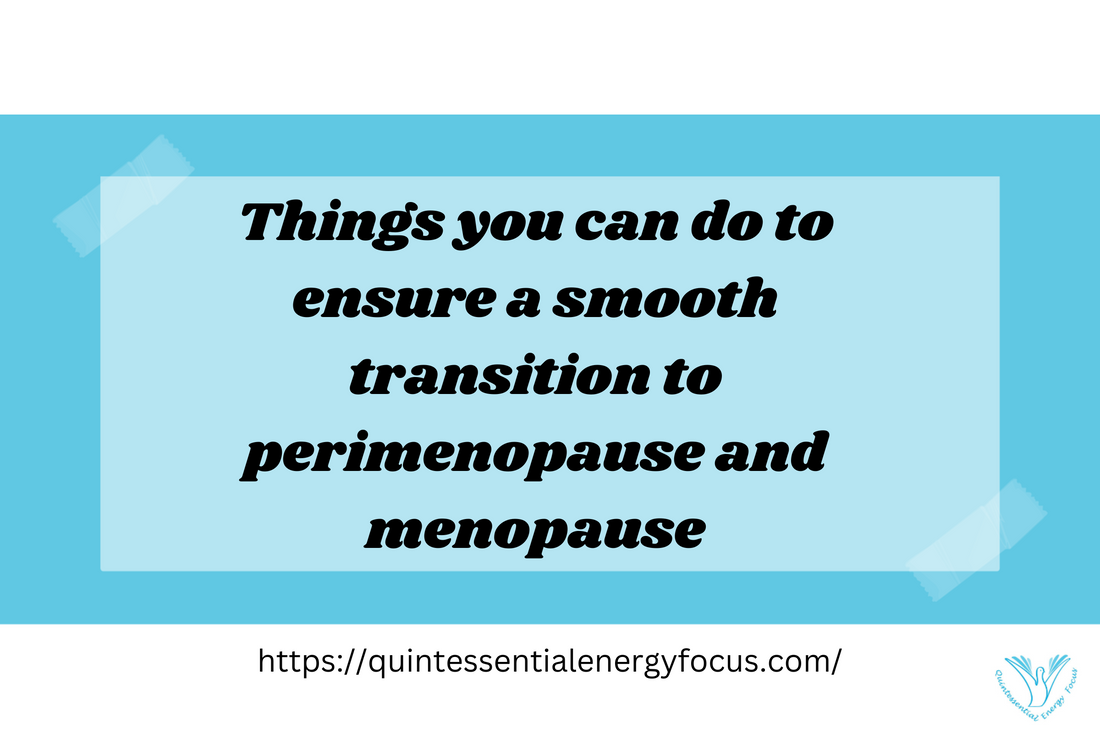Did you know there are things you can do to ensure a smooth transition to perimenopause and menopause? During these transitional periods, hormones are fluctuating wildly and can bring bothersome and debilitating symptoms such as menstrual irregularities, hot flashes, night sweats, insomnia, vaginal dryness, etc.
As a woman going through the perimenopausal or menopausal phase, I recently realized many of the things my doctor told me went right above my head. I knew there were things I needed to be aware of and do. However, there are loads more than I expected. It turned out, there are plenty of things I know nothing or very little about for a smooth perimenopause/menopause sailing.
Once I realized I need to educate myself more thoroughly about perimenopause and menopause, I set out to do some research.
Just thought I share what I’ve learned and/or already knew:
Things to do
- Take supplements that support the adrenal glands to help relieve fatigue, and improve mental and physical performance. More about supplements (specifically vitamin B) below.
- Support gut health with probiotics.
- Take a minimum of 2000 IU (50 mcg) of vitamin D daily.
- Ensure adequate omega-3 intake.
- Get regular exercise to help with moods, hot flashes, weight management, and bone health.
- Quit smoking, if you haven’t already.
- Avoid or minimize hot flash triggers such as caffeine and alcohol (particularly red wine).
- Avoid polyester fabrics which worsen hot flashes or sweating for many women. Choose natural fibres such as cotton.
- Aim for no more than 4 oz of animal products daily, especially if they contain added hormones. Ideally, choose organic animal products with no added hormones. Test your thyroid. Many symptoms diagnosed as perimenopause-related are similar to some symptoms of hypothyroidism or low thyroid.
- Test your bone mineral density every 2 years.
- Monitor your cardiovascular risk factors – blood pressure, lipids (including ApoB), blood sugar, C-reactive protein (CRP), and HbA1c.
- Practice healthy stress relief daily, such as enjoyable physical activity, quiet time, deep breathing, prayer, EFT tapping and meditation, all of which have significant health benefits in menopause and beyond.
- Grapeseed extract is rich in antioxidants that help the body fight free radical damage and inflammation. It improves difficult menopause-related symptoms such as hot flashes, anxiety and insomnia.
Remember, menopause is NOT a disease, but a normal life transition.
Vitamin B complex
In my research, in addition to the other supplement mentioned above, I also learnt things about vitamin B that I didn’t know before.
B vitamins are essential for the conversion of carbohydrates, fats, and protein into energy.
They are required daily as they are easily depleted by stress, poor diet, alcohol, and smoking. B vitamins are water-soluble nutrients vital for healthy tissues and blood cell formation, for the synthesis of brain chemicals which support mood, nerves, and sleep as well as for maintaining healthy levels of cholesterol, blood sugar, and homocysteine. Standard B complexes and even B vitamins in food are in forms that require activation by the liver.
Roughly 30% of the population are genetically unable to process B vitamins – especially folic acid – in their natural state and this can impact many aspects of health over time.
Fortunately, pre-converted individual B vitamins and B complexes are now on the market. A select few multivitamin and mineral combinations are also available that contain active B in place of standard forms.
Buy one of the newly available complexes that contain B vitamins in biologically active “coenzyme” forms such as 5-MTHF (active folate), methylcobalamin (active B12), and pyridoxal 5-phosphate (active B6).
If there’s anything I can help with to release the frustration that often makes these transitions worse, don’t hesitate to reach out. Click and book complimentary consultation here.
Always consult with your licensed healthcare professional before making a decision that may affect your health.

